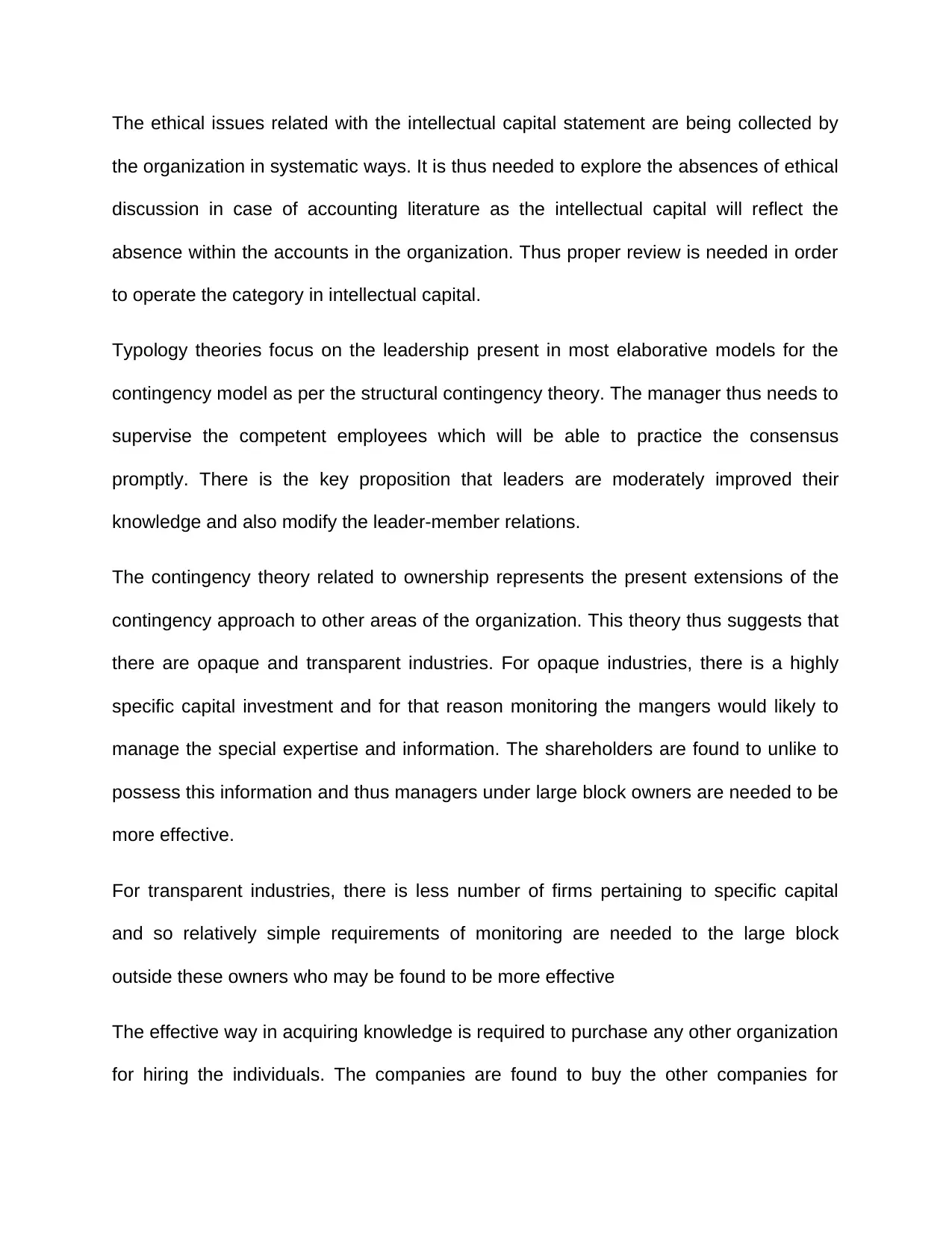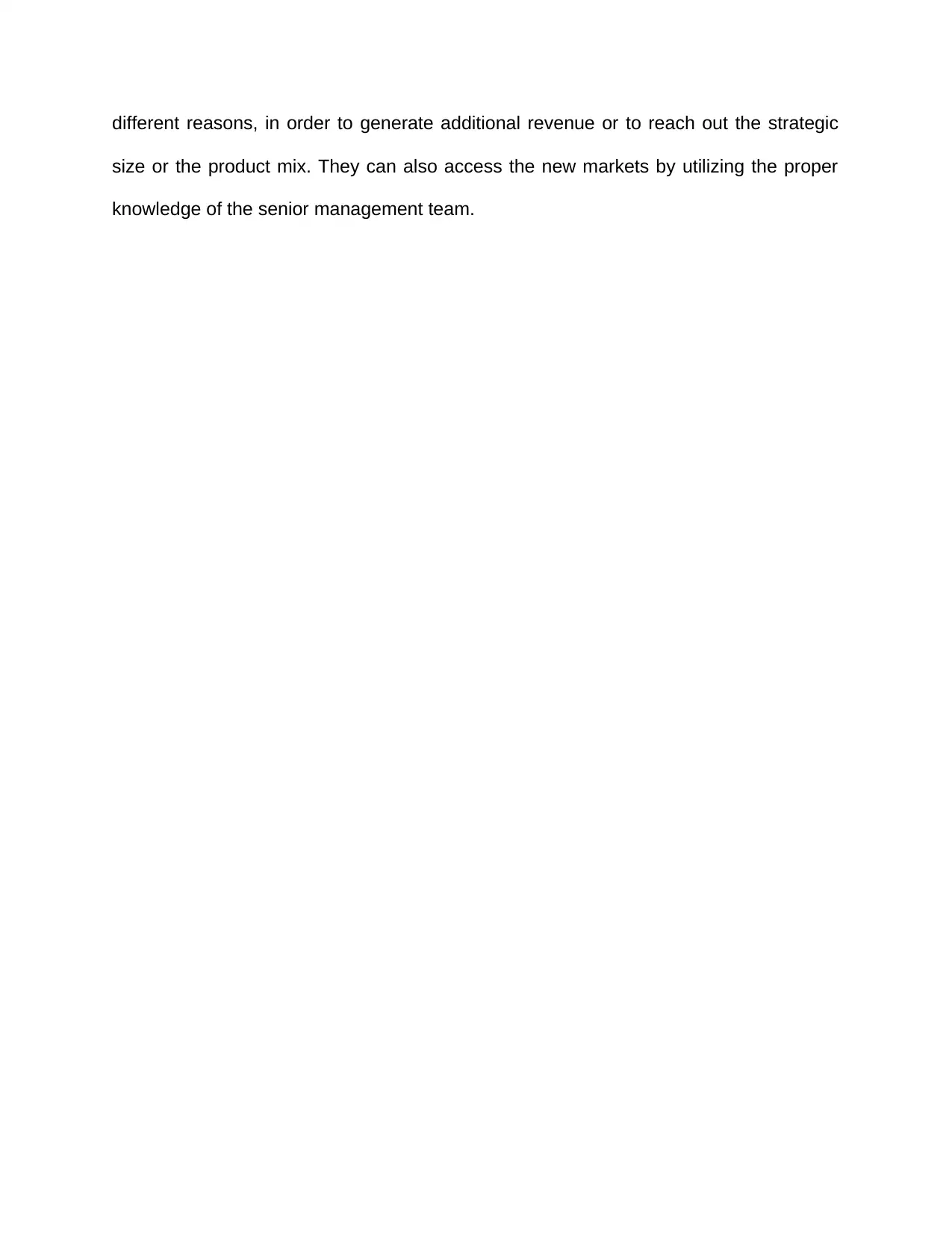The Role of Leadership in Intellectual Capital Management
VerifiedAdded on 2019/09/30
|2
|315
|138
Report
AI Summary
This report delves into the relationship between leadership and intellectual capital, examining ethical considerations and the contingency theory. The assignment explores how organizations collect and utilize intellectual capital, highlighting the need for ethical discussions within accounting literature. It also investigates leadership models, particularly the contingency theory, and how leaders can improve their relationships with team members. Furthermore, the report discusses how ownership structures impact the management of intellectual capital, distinguishing between opaque and transparent industries. The assignment also touches upon the significance of knowledge acquisition, including strategies like mergers and acquisitions for accessing new markets and talent. The report provides a comprehensive overview of leadership's role in managing intellectual capital and its associated challenges.
1 out of 2








![[object Object]](/_next/static/media/star-bottom.7253800d.svg)